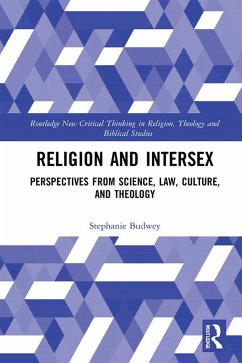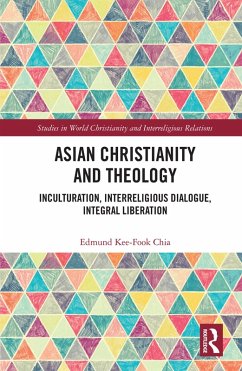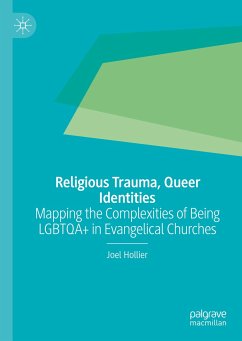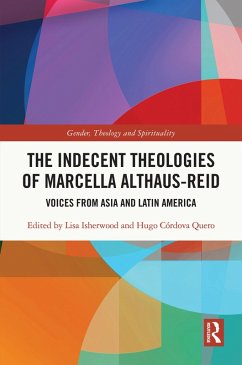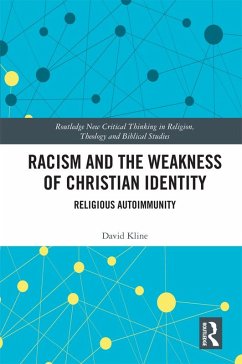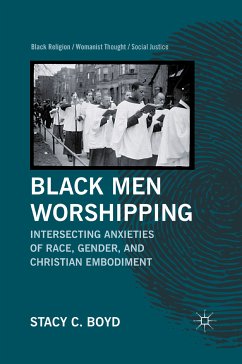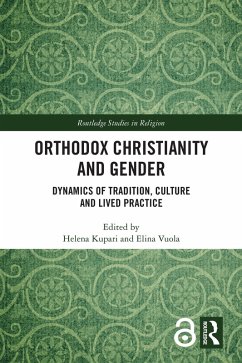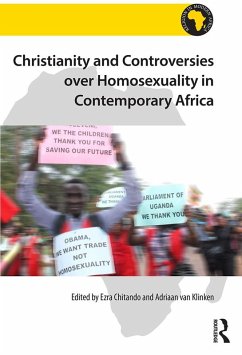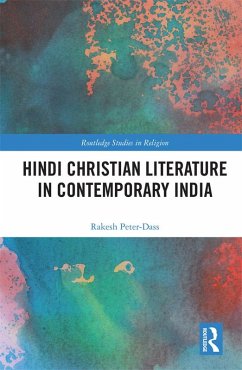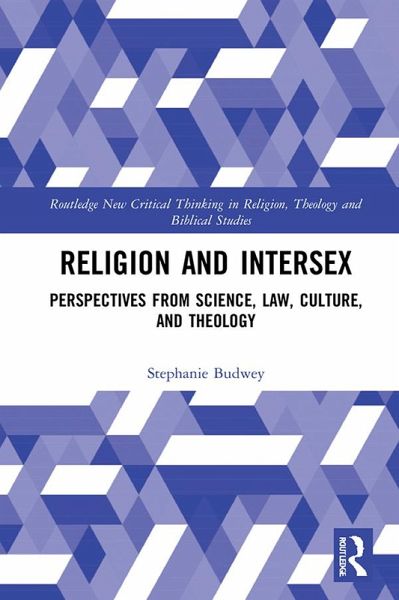
Religion and Intersex (eBook, PDF)
Perspectives from Science, Law, Culture, and Theology
Versandkostenfrei!
Sofort per Download lieferbar
39,95 €
inkl. MwSt.
Weitere Ausgaben:

PAYBACK Punkte
20 °P sammeln!
This book considers the situation of intersex people who have faced erasure in the areas of science, law, culture, and theology due to the assumption that all humans are either 'female' or 'male.'Centered in interviews conducted with German intersex Christians, this book argues that moving from a paradigm of sexual dimorphism to sexual polymorphism will help promote the full humanity and flourishing of intersex people by creating a world where intersex individuals are no longer coerced and/or forced to undergo non-consensual, medically unnecessary treatment, no longer experience human rights v...
This book considers the situation of intersex people who have faced erasure in the areas of science, law, culture, and theology due to the assumption that all humans are either 'female' or 'male.'
Centered in interviews conducted with German intersex Christians, this book argues that moving from a paradigm of sexual dimorphism to sexual polymorphism will help promote the full humanity and flourishing of intersex people by creating a world where intersex individuals are no longer coerced and/or forced to undergo non-consensual, medically unnecessary treatment, no longer experience human rights violations because of their lack of legal protection, no longer feel inhuman and Other due to epistemic injustice that stems from socio-cultural norms and stereotypes, are no longer told they are not made in God's image as a result of a sexually dimorphic understanding of Genesis 1:27, and no longer feel excluded and invisible in worship services that do not recognize them.
This combination of the practical and the spiritual allows for a reconsideration of the medical treatment and pastoral care that should be available to intersex people. This book will be helpful to those in the disciplines of science, law, culture, and theology, particularly those in gender and theological studies and those already in and studying for lay and ordained ministry.
Centered in interviews conducted with German intersex Christians, this book argues that moving from a paradigm of sexual dimorphism to sexual polymorphism will help promote the full humanity and flourishing of intersex people by creating a world where intersex individuals are no longer coerced and/or forced to undergo non-consensual, medically unnecessary treatment, no longer experience human rights violations because of their lack of legal protection, no longer feel inhuman and Other due to epistemic injustice that stems from socio-cultural norms and stereotypes, are no longer told they are not made in God's image as a result of a sexually dimorphic understanding of Genesis 1:27, and no longer feel excluded and invisible in worship services that do not recognize them.
This combination of the practical and the spiritual allows for a reconsideration of the medical treatment and pastoral care that should be available to intersex people. This book will be helpful to those in the disciplines of science, law, culture, and theology, particularly those in gender and theological studies and those already in and studying for lay and ordained ministry.
Dieser Download kann aus rechtlichen Gründen nur mit Rechnungsadresse in A, B, BG, CY, CZ, D, DK, EW, E, FIN, F, GR, HR, H, IRL, I, LT, L, LR, M, NL, PL, P, R, S, SLO, SK ausgeliefert werden.




